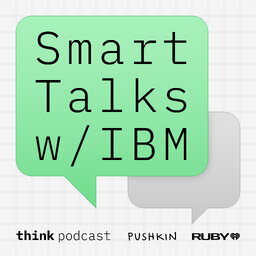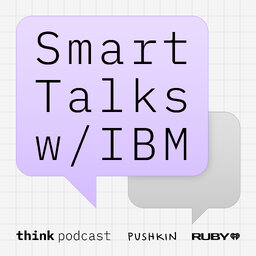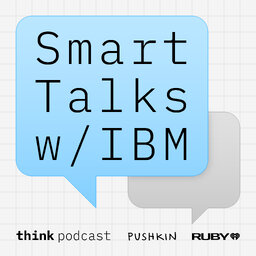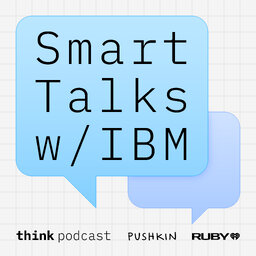How Infrastructure is Powering the Age of AI
In this episode of Smart Talks with IBM, Malcolm Gladwell speaks with Ric Lewis, IBM’s Senior Vice President of Infrastructure. They discuss how hardware capability has enabled the matrix math required to run large language models. Furthermore, they delve into some creative examples of how to put AI to work: from your bank to your local coffee shop. Ric underscores the importance of infrastructure in unlocking the potential of AI, helping businesses harness their data to drive transformative outcomes.
This is a paid advertisement from IBM. The conversations on this podcast don't necessarily represent IBM's positions, strategies or opinions.
Visit us at https://ibm.com/smarttalks
In 1 playlist(s)
Smart Talks with IBM
Join Malcolm Gladwell, author and host of Revisionist History, for Smart Talks with IBM as he speaks…Social links
Follow podcast
Recent clips

NASA and AI: Decoding Our Universe
33:03

Unlocking Our Quantum Future
52:51

IBM CEO Arvind Krishna: Creating Smarter Business with AI and Quantum
52:03
 Smart Talks with IBM
Smart Talks with IBM